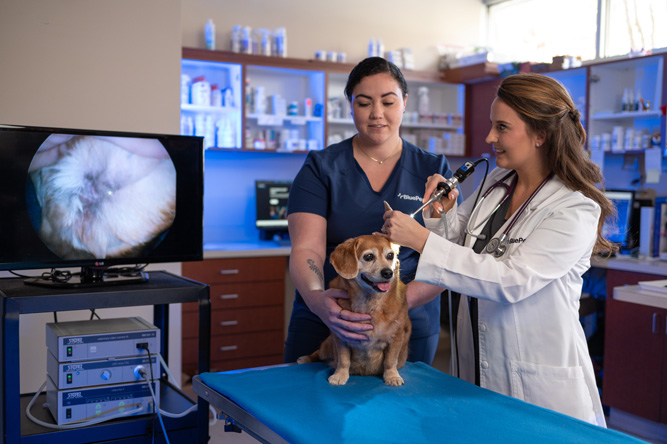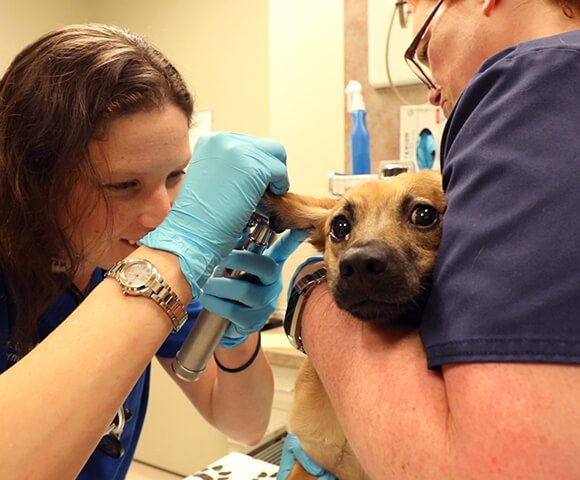Veterinary dermatology: from allergies to toenails.
Conditions we treat:
Common dermatological issues:
A smelly dog is usually a sign of some sort of infection. A veterinary dermatologist can examine your dog to diagnose whether it's from an allergy or something more serious like cancer or an auto-immune disease.
Usually, the first step is treating the infection, but that doesn't necessarily fix the underlying problem. From there, it depends on how severe the symptoms are and how difficult it is to get to the heart of the problem.
Dog allergies are quite common, but they can be troublesome for both pets and owners, especially if you notice excessive scratching or licking. If they’re scratching, licking, rolling, scooting to the degree that you're aware of it, it could be a problem.
Dogs suffering from allergies can also be whiny and scratch itchy skin to the point that neither they – nor you – get much sleep.
The first step is to treat the symptoms and stop the itching. Next, is to try an allergy medication. If that doesn’t work to control your dog’s allergies, the dermatology specialist will conduct allergy testing to discover what is actually triggering your dog’s symptoms.
Some BluePearl hospitals offer intradermal (meaning “into the skin”) allergy testing that injects tiny amounts of allergens under the skin, just like in human allergy testing. This method provides up to five times more information than standard blood allergy testing.
If your dog is pawing at his head or is tilting or shaking his head a lot, it could be a sign of an ear infection. Believe it or not, this is a condition that veterinary dermatologists treat frequently.
The ear canal is lined by skin, so dogs with flaring allergy symptoms are often also suffering from an ear infection.
A collection of material from the ear, looked at under a microscope, can help identify which bacteria are present. Then, your pet's dermatologist can prescribe an appropriate antibiotic. Ear flushes or oral pain medications may also be prescribed.
Ear infections are often a symptom of another underlying problem, so it’s important to address the allergy or other root problem to fully resolve the issue. Dermatologists use tools like a video otoscope to look deep inside the ear.


